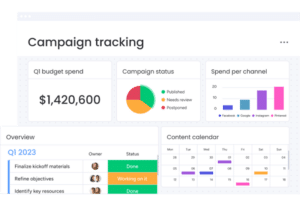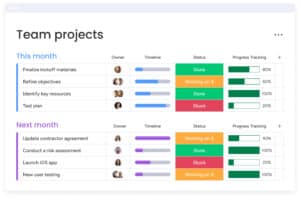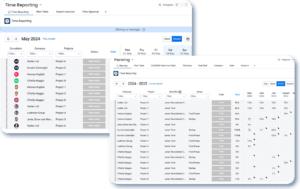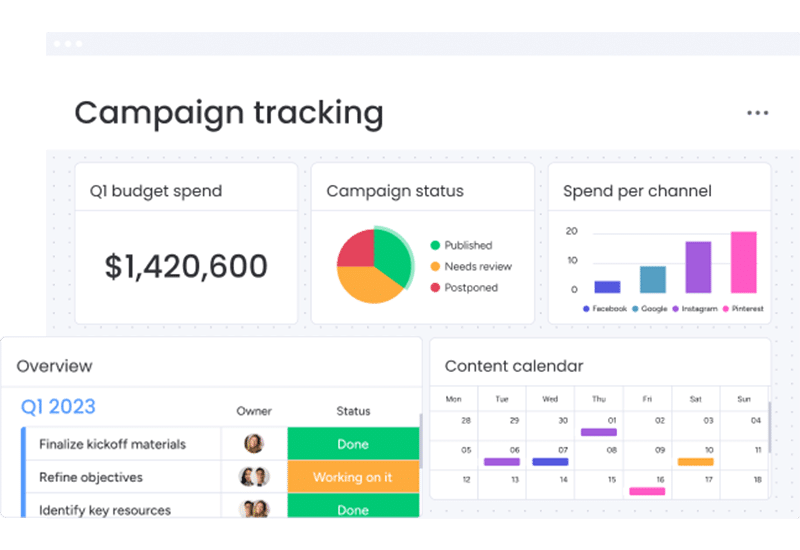Introduction
In the rapidly evolving world of startups, the foundation for sustainable growth often hinges on effective customer relationship management. “Building a Scalable CRM Strategy for Startup Growth” is more than just a phrase. It’s a vital blueprint for any emerging business aiming to thrive in a competitive market. As startups navigate through initial growing pains, the ability to manage customer relationships efficiently and effectively becomes paramount.
The significance of a well-structured CRM strategy cannot be overstated. It’s not just about keeping track of customer interactions; it’s about cultivating a system that grows with your business, adapts to your evolving needs, and aligns seamlessly with your unique business goals. In this increasingly digital era, where customer data is gold, having a scalable CRM strategy equips startups with the tools to mine this wealth effectively.
Throughout this blog post, we’ll explore the essential components of building a CRM strategy that not only meets your current needs but also scales to accommodate future growth. Whether you’re laying the groundwork for your CRM initiatives or looking to refine existing practices, our insights will help you develop a robust framework for sustained success and customer satisfaction.
Understanding the Role of CRM in Startups
In the dynamic startup landscape, the adoption of a Customer Relationship Management (CRM) system plays a crucial role in shaping a business’s trajectory. Understanding this role is the first step in building a scalable CRM strategy for startup growth. Let’s delve into why CRM is not just a tool but a strategic ally for startups.
CRM as a Business Strategy
Far from being just a software solution, CRM embodies a business strategy that centralizes customer information, streamlines interactions, and fosters customer-centric decision-making. For startups, this means building a business where customer insights drive growth.
The Role of CRM in Customer Lifecycle Management
CRM systems excel in managing the entire customer lifecycle, from initial contact to post-sale support. This comprehensive approach is vital for startups, as it helps in nurturing long-term customer relationships, essential for sustainable growth.
Challenges Without CRM
- Data Disorganization and Inefficiency: Startups without a CRM strategy often struggle with scattered customer data. This leads to inefficiencies and missed opportunities, as valuable insights get lost in the shuffle.
- Impaired Customer Experience: A disjointed approach to customer management can result in a poor customer experience. In a world where customer satisfaction is paramount, this can be detrimental to a startup’s reputation and growth.
The Impact of CRM on Startup Growth
- Streamlining Operations: By automating and organizing customer-related tasks, CRM systems enable startups to focus on growth-oriented activities.
- Data-Driven Decisions: With a wealth of customer data at their fingertips, startups can make informed decisions, tailor their offerings, and anticipate market trends.
- Scalability and Flexibility: A scalable CRM strategy grows with your startup. It adapts to changing business needs, ensuring that customer management remains efficient at every stage of your business growth.
Omnitas Newsletter
Sign up for our monthly newsletter to stay up-to-date on our latest blog articles, videos and events!
Thank you!
You have successfully joined our subscriber list.
Key Features of an Effective CRM for Startups
As we delve deeper into building a scalable CRM strategy for startup growth, it’s crucial to identify the key features that make a CRM system effective for startups. These features not only streamline customer management but also provide a robust framework for growth and scalability.
Lead Tracking and Management
Startups thrive on their ability to attract and convert leads. An effective CRM system offers comprehensive lead-tracking tools, enabling startups to monitor lead sources, track interactions, and optimize conversion strategies. By understanding where leads come from and how they engage with your business, you can tailor your marketing and sales efforts more effectively.
Customer Segmentation
Segmenting customers into distinct groups based on their behaviours, preferences, and needs allows for more targeted and personalized marketing efforts. Startups can use customer segmentation to send customized communications, offer tailored solutions, and create more engaging customer experiences.
Sales Pipeline Management
A clear view of the sales pipeline is essential for startups to manage and forecast sales activities effectively. CRM systems help in tracking deals at various stages, identifying bottlenecks, and streamlining the sales process for better efficiency and higher conversion rates.
Automation of Repetitive Tasks
Automation in CRM frees up valuable time for startups by handling repetitive tasks like data entry, email responses, and appointment scheduling. This allows startup teams to focus more on strategic activities and less on administrative tasks.
Analytics and Reporting
Data-driven insights are critical for informed decision-making in startups. An effective CRM provides analytics and reporting tools that translate customer data into actionable insights. Startups can track key performance indicators, understand customer behaviour, and refine strategies based on real data.
Integration Capabilities
For a CRM to be truly effective, it needs to integrate seamlessly with other tools and systems used by the startup, such as marketing automation platforms and customer support software. Integration ensures a unified approach to customer management and a more cohesive workflow.
Scalability
A CRM system must be able to grow with your startup. Scalability ensures that as your business expands, your CRM can handle increased demands without sacrificing performance. Scalable CRM solutions allow startups to add more users, manage larger datasets, and incorporate additional functionalities as they grow.
Incorporating these key features into your CRM strategy not only sets the stage for effective customer relationship management but also ensures that your CRM system is an asset in your startup’s growth journey. As we continue exploring building a scalable CRM strategy for startup growth, remember that the right CRM features can make a significant difference in how your startup interacts with and serves its customers.
Steps to Build a Scalable CRM Strategy
Embarking on the journey of building a scalable CRM strategy for startup growth involves a series of strategic steps. Each step is designed to ensure that your CRM system not only meets your current needs but also adapts and scales according to your startup’s growth trajectory. Let’s explore these crucial steps.
Assessing Your Startup’s Unique Needs
- Understanding Your Requirements: Begin by evaluating your startup’s specific needs. What are your sales processes? What kind of customer data are you handling? Understanding these elements is crucial for choosing a CRM that fits like a glove.
- Setting Clear Objectives: Define what you want to achieve with your CRM system. Whether it’s improving customer engagement, streamlining sales processes, or enhancing team collaboration, having clear objectives guides your CRM strategy.
Customizing and Integrating the CRM
- Tailoring to Your Needs: Once you’ve chosen a CRM, customize it to fit your startup’s processes. This might involve setting up custom fields, sales pipelines, or automated workflows.
- Integrating with Other Tools: Integrate your CRM with other tools used in your startup like email marketing software, customer support platforms, or project management tools. This creates a seamless ecosystem for your business operations.
Data Import and Management
- Migrating Existing Data: Safely import existing customer data into your new CRM. Ensure data accuracy and completeness during this transition.
- Establishing Data Entry Protocols: Set guidelines for data entry to maintain data quality. Consistent and accurate data entry is vital for reliable CRM performance.
Training and Encouraging Team Adoption
- Comprehensive Training: Provide thorough training for your team. Ensure everyone understands how to use the CRM effectively.
- Fostering a CRM Culture: Encourage your team to use the CRM consistently. Adoption is key to reaping the full benefits of the system.
Monitoring and Adapting the Strategy
- Regularly Reviewing CRM Metrics: Regularly analyze data and metrics provided by your CRM to assess performance and identify areas for improvement.
- Staying Agile: Be prepared to adapt your CRM strategy as your startup grows and evolves. Continuous refinement ensures that your CRM remains a powerful tool for growth.
By following these steps, you can build a CRM strategy that not only caters to your startup’s current needs but is also primed for future growth and success. As we delve deeper into building a scalable CRM strategy for startup growth, remember that each step is an investment in your startup’s future, laying a foundation for enhanced customer relationships and business scalability.
The Benefits of monday.com Sales CRM for Startups
In the journey of building a scalable CRM strategy for startup growth, it’s important to highlight specific platforms that stand out for their suitability for startups. monday.com Sales CRM is one such platform that offers distinct advantages for emerging businesses. Let’s delve into why monday.com Sales CRM could be an ideal choice for startups looking to enhance their customer relationship management.
User-Friendly Interface
monday.com is renowned for its user-friendly and visually appealing interface. Its intuitive design makes it easy for startup teams to adapt and use the system effectively, reducing the learning curve. The platform allows startups to create custom workflows that mirror their unique sales processes, making it easier to track and manage customer interactions and sales activities.
Flexibility and Customization
monday.com offers a high degree of customization, enabling startups to tailor the CRM to their specific needs. This includes custom fields, boards, and automation rules that fit various business models. Whether it’s managing lead pipelines, tracking customer interactions, or analyzing sales data, monday.com can be adapted to meet a wide range of business requirements.
Scalability
The platform is built to scale, accommodating the growing needs of a startup. As your business expands, monday.com can handle an increasing number of users, more complex workflows, and larger sets of data without sacrificing performance. monday.com is suitable for businesses of all sizes, from small startups to large enterprises, ensuring it remains a viable tool as your startup evolves.
Integration Capabilities
monday.com integrates seamlessly with a multitude of other tools and platforms, such as email, social media, marketing automation tools, and more, facilitating a unified approach to business operations. The availability of a robust API allows for custom integrations, further enhancing its utility and ensuring it fits perfectly within your startup’s tech ecosystem.
Collaboration and Communication
monday.com facilitates better team collaboration by providing a centralized platform for communication and task management, ensuring everyone is on the same page. Real-time updates and notifications keep team members informed about the latest developments in customer interactions and sales activities.
Data-Driven Insights and Reporting
The platform offers advanced analytics and reporting features, enabling startups to make data-driven decisions. This includes tracking sales performance, customer engagement metrics, and more. With its emphasis on visual data representation, monday.com makes it easier for startups to interpret complex data, aiding in strategic planning and performance review.
Incorporating monday.com Sales CRM into your startup’s CRM strategy offers a blend of user-friendliness, customisation, and scalability, making it an excellent choice for startups committed to building strong customer relationships and driving growth. As we explore building a scalable CRM strategy for startup growth, consider how a platform like monday.com can be a pivotal tool in achieving your business objectives.

Best Practices for CRM Strategy in Startups
In our exploration of building a scalable CRM strategy for startup growth, it’s essential to understand the best practices that can maximize the effectiveness of a CRM strategy. For startups, where resources are often limited and every customer interaction counts, adhering to these practices can make a significant difference. Here, we’ll delve into some of the key best practices for implementing a CRM strategy in a startup environment.
Maintaining High-Quality Data
Ensure that data entered into the CRM is consistent, accurate, and up-to-date. Regular audits and clean-ups can prevent data decay, which can lead to misguided decisions. Encourage a culture where all customer-related data is stored and managed within the CRM system, avoiding scattered information across different platforms or departments.
Regular Training and Support for Team Members
Provide thorough training for new team members on how to use the CRM effectively, highlighting its benefits and functionalities. Offer regular refresher courses and support for existing staff to ensure they are up-to-date with any new features or best practices in CRM usage.
Fostering User Adoption and Engagement
Engage your team in the CRM selection process and its customization. This involvement can increase their commitment to using the system effectively. Acknowledge and reward employees who effectively use the CRM system. This can motivate others to follow suit and foster a positive CRM culture.
Integrating CRM with Other Business Processes
Ensure your CRM is integrated with other key business systems such as marketing automation, customer support, and financial software to create a unified view of the customer. Utilize the CRM’s automation features to streamline workflows, reduce manual tasks, and increase efficiency.
Regularly Reviewing and Updating the CRM Strategy
Regularly review the effectiveness of your CRM strategy. Look at how well it’s helping achieve business goals and where there’s room for improvement. Be prepared to adjust your CRM strategy as your startup grows and as market conditions evolve. Flexibility is key to staying relevant and effective.
Leveraging CRM Analytics for Strategic Decisions
Use the CRM’s analytics and reporting tools to gain insights into customer behaviour, sales trends, and other vital metrics. Base strategic decisions on the data and insights gathered from your CRM, ensuring that your strategies are grounded in real customer interactions and outcomes.
By following these best practices, startups can ensure that their CRM strategy is not only effective but also a driving force for growth and customer satisfaction. As you continue with building a scalable CRM strategy for startup growth, remember that the success of your CRM initiative hinges not just on the technology you choose but also on how well it is embraced and utilized within your organization.
Measuring the Success of Your CRM Strategy
As we navigate the complexities of building a scalable CRM strategy for startup growth, it’s crucial to establish how to measure its success. Monitoring the performance and impact of your CRM strategy is key to understanding its effectiveness and identifying areas for improvement. In this section, we’ll discuss the metrics and methods startups can use to gauge the success of their CRM initiatives.
Identifying Key Performance Indicators (KPIs)
Identify KPIs that are most relevant to your CRM goals. These could include metrics like customer acquisition cost, customer lifetime value, lead conversion rate, and sales cycle length. Ensure that the chosen KPIs align with your startup’s overall business objectives. This alignment guarantees that your CRM strategy contributes directly to your broader business goals.
Tracking Customer Engagement and Satisfaction
Monitor how customers interact with your brand through the CRM. Metrics like email open rates, event attendance, or social media engagement can provide insights into customer engagement levels. Regularly conduct surveys to gauge customer satisfaction. Tools integrated with your CRM can automate this process, providing continual feedback on customer sentiment.
Analyzing Sales Performance
Review sales-related metrics such as win rates, average deal size, and quota attainment. These metrics can indicate how effectively your CRM is supporting your sales team. Evaluate the health of your sales pipeline. Look at the number of opportunities at each stage, conversion rates, and pipeline velocity.
Evaluating Marketing ROI
Use CRM data to assess the effectiveness of marketing campaigns. Measure metrics like lead generation, conversion rates, and ROI of marketing activities. Track how well your CRM strategies are aiding in acquiring new customers and retaining existing ones. High customer retention rates often reflect successful CRM implementation.
Monitoring User Adoption and Activity
Monitor how actively your team is using the CRM. Metrics like logins, record updates, and usage of key features can indicate the level of adoption. Regularly solicit feedback from your team on the CRM’s usability and effectiveness. Their insights can reveal practical aspects of the CRM’s impact on daily operations.
Regular Reviews and Adjustments
Schedule regular reviews of your CRM strategy and its performance. This helps in identifying successful aspects and areas needing improvement. Be prepared to adapt your CRM strategy based on these reviews. As your startup grows, your CRM strategy should evolve to meet changing needs and leverage new insights.
By systematically measuring the success of your CRM strategy through these methods, your startup can not only validate the effectiveness of its current approach but also uncover valuable insights for continuous improvement. Remember, in the process of building a scalable CRM strategy for startup growth, the ability to measure, learn, and adapt is as important as the strategy itself.
Conclusion
As we conclude our exploration of building a scalable CRM strategy for startup growth, it’s evident that the right CRM strategy is not just a tool but a vital component in the engine driving startup success. From nurturing customer relationships to streamlining sales processes and providing invaluable data-driven insights, a well-implemented CRM system is indispensable for startups looking to scale and thrive in today’s competitive landscape.
Implementing a CRM strategy is a journey of continuous improvement and adaptation. The landscape of customer relationship management is ever-evolving, and staying ahead means being proactive, flexible, and responsive to both market trends and customer needs. As your startup grows, your CRM strategy should evolve alongside it, scaling to meet new challenges and leveraging every opportunity for growth.
If you’re curious about how to effectively leverage a CRM platform like monday.com Sales CRM in your startup, or if you’re seeking to refine your existing CRM strategy, we at Omnitas are here to guide you. Our expertise in CRM implementation and optimization, particularly for growth-focused startups, positions us as your ideal partner in this journey.
Moreover, we’re excited to offer you the opportunity to try monday.com Sales CRM for free. By using our exclusive link, you can explore firsthand how this versatile and scalable CRM platform can transform your startup’s approach to customer relationship management.
Don’t miss this chance to empower your startup with a CRM strategy that’s designed for success. Reach out to us for a free consultation below. Together, let’s build a CRM strategy that not only meets your current needs but also propels your startup into a future of sustained growth and success.
If you found this article useful, make sure to sign up for our monthly newsletter below and stay in the loop with all things business efficiency!
























